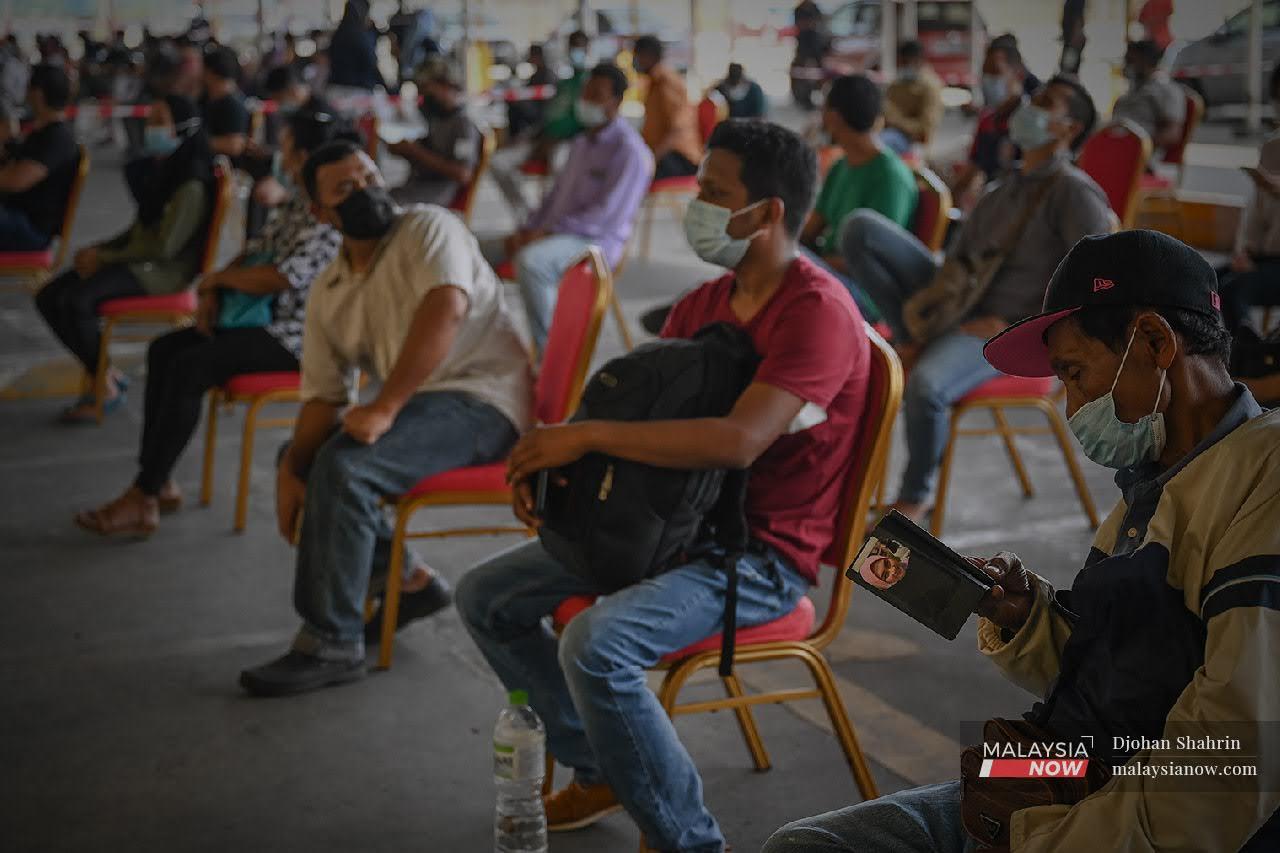Health experts back Covid-19 jabs for migrants
Protecting them means protecting others as well, they say, urging the government against being 'penny-wise and pound-foolish'.
Just In
Health experts have voiced support for the call to vaccinate migrants in the country against Covid-19, saying this will help control the spread of the virus which has so far infected more than 200,000 and claimed 770 lives.
They also urged the government to prioritise migrants in its National Vaccination Plan given their often poor living conditions which make them particularly vulnerable to infection.
“Vaccinating migrant workers should be a priority in the government’s plan to inoculate the population as they have been identified as a high-risk group for Covid-19 infections due to their cramped living conditions,” Malaysian Medical Association president Dr Subramaniam Muniandy told MalaysiaNow.
This comes as migrant rights activists urge the government to inoculate non-citizens – documented and undocumented – given the high number of cases recorded among them.
The National Vaccination Plan, expected to roll out this month, aims to achieve 70% herd immunity involving 23 million Malaysians with medical frontliners the first to receive the vaccine.
Next will come those in high-risk groups, identified as adults aged 60 and above and those with chronic illnesses.
The third phase will cover members of the public aged 18 and above.
“We need to see this as an investment for the overall health objective of managing the spread of the disease in Malaysia.”
Health experts who spoke to MalaysiaNow said migrants should be included in the high-risk group due to their cramped living conditions which make SOPs a challenge to follow.
Azrul Mohd Khalib, CEO of the Galen Centre for Health and Social Policy, urged the government to address the matter from the perspective of public health given the consistently high number of cases recorded.
“This is a public health emergency,” he added. “We need to see this as an investment for the overall health objective of managing the spread of the disease in Malaysia.”
There were an estimated two million documented migrants in the country as of June 2019. Another three million undocumented migrants take the total to a whopping five million.
According to health ministry calculations, the coronavirus jab will cost RM77.35 per person. This means the cost of inoculating five million migrants would be approximately RM386.75 million.
Experts were split on who should absorb the cost of vaccinating migrants.
Subramaniam said the cost should be borne by employers who are responsible for ensuring the health of their workers.
But Dr Raj Kumar Maharajah, president of the Medical Practitioners Coalition Association of Malaysia, disagreed.
He said embassies should take responsibility for their citizens in Malaysia.
“In principle, vaccinating as many people in this country as possible would be a good thing regardless of whether they are citizens or not.”
“The embassies could subsidise payments (for the vaccine) for these workers,” he said, adding that the government could extend the vaccination plan to foreigners if there are sufficient funds.
Former health deputy director-general Dr Christopher Lee meanwhile suggested a shared responsibility between the government, employers and workers.
“In principle, vaccinating as many people in this country as possible would be a good thing regardless of whether they are citizens or not,” he said.
“In terms of controlling the pandemic here, vaccinating migrant workers would also be strategic in keeping our business sector open as they make up a significant chunk of our workforce.”
Azrul said it would be more cost-effective to pay for vaccines than for the treatment of those infected.
“This is not the time to be penny-wise and pound-foolish,” he said, adding that Covid-19 does not discriminate.
“Viruses do not discern whether you hold an IC, passport or no documentation, but because migrant communities live and work among us, protecting them means protecting others as well.”
Subscribe to our newsletter
To be updated with all the latest news and analyses daily.
